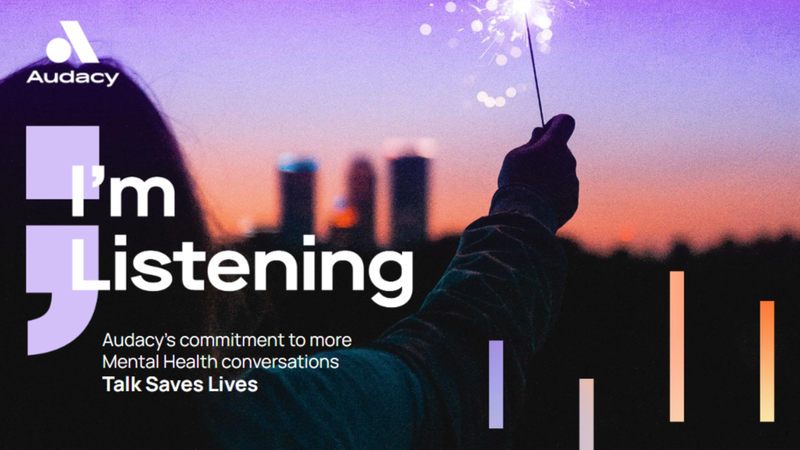
PHILADELPHIA (KYW Newsradio) — For the fifth year in a row, data from a major mental health survey shows an alarming rate of elevated suicide risk reported by LGBTQ young people — and that most of the young people who seek out mental health care are unable to get it.
That’s according to the 2023 mental health survey of over 28,000 LGBTQ young people from The Trevor Project, a suicide-prevention nonprofit focused on queer youth. The Trevor Project’s Nicholas Turton joined host David O'Leary to share the top-level takeaways on an LGBTQ Pride Month edition of Audacy’s "I’m Listening" broadcast.
LGBTQ youth are not necessarily inherently prone to suicide risk because of their gender identity or sexual orientation, Turton said. Rather, victimization, discrimination and stigma — from rampant anti-LGBTQ sentiment, threats of isolation and physical violence, and a political establishment that continues to put the existence of queer youth at the center of debates in state legislatures that introduce and implement anti-LGBTQ policies — all contribute to higher rates of suicide risk.
According to Human Rights Campaign, at least 520 anti-LGBTQ bills have been introduced in state legislatures this year alone. That’s a record. Over 220 bills have targeted people who identify as transgender and gender-nonbinary — another record.
Already passed and signed into law this year: 70 laws (another record) that create a license to discriminate against LGBTQ people, by:
— Banning gender-affirming care for transgender youth.
— Requiring or allowing misgendering of transgender students.
— Banning drag performances.
— Restricting access to library books.
— Censoring school curricula.
And when the dominant culture views seeking help — specifically mental health treatment — with shame, it introduces additional risk factors, said Dr. Christine Moutier, chief medical officer for the American Foundation for Suicide Prevention.
Moutier also joined to speak firsthand about the devastation that comes from losing someone to suicide.
Suicide affects not just individuals, but also families and faith groups and colleagues and so many other communities, she said.
“I would just make a pitch or a plea to all of your listeners to put any larger agendas aside and just think about the people in our own lives — your family members, your friends, your co-workers,” said Moutier, a leader in the field of suicide prevention. “Everyone faces challenges. Everyone has mental health to address and to manage. Some of us also have mental health conditions, which are an additional responsibility — but one that can be done just like a physical health condition is something to take care of.”
Related podcast
“I’m Listening” is Audacy’s commitment to inspire more conversations about mental health. Talk really does have the power to save lives.
Resources
Suicide and Crisis Lifeline: 988
The Lifeline provides 24/7, free and confidential support for people in distress, prevention and crisis resources for you or your loved ones, and best practices for professionals in the United States. Available in English and Spanish. Includes services for deaf and hard-of-hearing individuals.
The Trevor Project: (866) 488-7386
The nonprofit focuses on suicide-prevention efforts among LGBTQ youth, offering a toll-free telephone number where confidential assistance is available and provided by trained counselors, along with many other resources.



